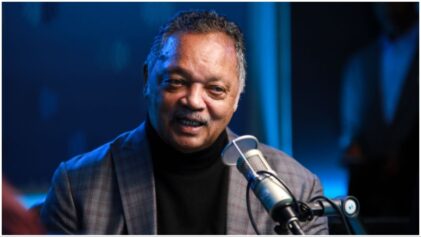It is difficult to follow in the footsteps of famous parents.
Just ask one of Martin Luther King Jr.’s children, or a Kennedy clan member, or D.C. Council member Michael A. Brown (Independent-At Large), son of the late Commerce Secretary Ron Brown, or Jesse Jackson, Jr.
Once heralded as a hardworking, promising legislator, known for doing his homework and building relationships across the aisle, the younger Jackson’s career has apparently come to an end, following public acknowledgement of a bipolar disorder, a federal investigation into whether Jackson misused campaign funds and his decision to resign the congressional seat to which he recently won reelection.
Just four years ago, it appeared Jackson might be a strong contender for the U.S. Senate seat vacated by President-elect Barack Obama. That opportunity disappeared when then-Illinois Gov. Rod Blagojevich was arrested and charged with trying to sell Obama’s Senate seat to the highest bidder and a fundraiser for the governor said Jackson asked him to raise millions of dollars for Blagojevich’s campaign.
Jackson wasn’t charged with wrongdoing, but an investigation did open into whether the Chicago congressman had used campaign funds for personal expenses and an extramarital affair was revealed.
But regardless of how well, or poorly, he did, Jackson’s legacy would always be viewed in comparison with his father, the Rev. Jesse Jackson: a lieutenant to Martin Luther King Jr., a powerful political activist, with an international reputation who even won the release of hostages, a two-time presidential candidate who changed Democratic primaries to proportional representation rather than winner-take-all, who is widely credited with paving the way for Barack Obama to become president.
Rev. Jackson has never held office and has not held the kind of positions that call for dealing with tedious details and arcane rules. The younger Jackson was extremely effective in navigating the halls of Congress. He was, to paraphrase the elder Jackson, a “jelly-maker,” while his father was a “tree-shaker.”
The tree-shakers often are more heralded and it can be difficult to stand apart from a parent or sibling who is already in the limelight.
“…I know it is not always easy to live up to the expectations that come with familial connections. While you inherit many of your father’s friends, you also inherit all of his enemies—some of whom you don’t know have it in for you,” Michael K. Fauntroy, nephew of Washington D.C.’s first nonvoting delegate to Congress, the Rev. Walter Fauntroy, wrote in a blog for the Huffington Post. “It is also more difficult to develop one’s own self when their power is almost entirely derivative of their political connections.”
Michael A. Brown was recently defeated for reelection to his D.C. Council seat and his office has been under investigation for possible campaign violations and, while he has not been implicated in the case, Brown discovered during the summer that over $100,000 was missing from his campaign.
Brown’s father, Ron Brown was politically savvy, the powerful and effective chairman of the Democratic National Committee, a brilliant strategist and fundraiser and Bill Clinton’s Secretary of Commerce, who died in a plane crash while on a trade mission to Croatia in 1996.
Ron Brown, it was generally agreed, had the magic touch; something his son, a lawyer and international consultant, as well as a city council member in D.C., reportedly never quite seemed to develop.
In fact, he was defeated by a less well-known and less well-funded challenger in his bid for reelection and despite being chairman of the Council’s Economic Development Committee, which should have made it easier for Brown to raise money.
In this case, the apple appeared to have fallen far from the tree.
In an interview with BlackAmericaWeb.com about the late Sen. Ted Kennedy, who was a close political ally of Ron Brown, the younger Brown said being the son of a well-known and connected politician is no guarantee that the child will learn everything at his father’s knee.
“People always ask me what it was like being Ron Brown’s son,” Michael Brown said. “They think it was exciting. There was some exposure to politics, but it was the usual stuff: Did you do your homework? Did you clean your room?”
Brown said he frequently visited Kennedy’s Washington home when he tagged along with his father when the two men had to run meetings or finish a project, but that he largely hung out with Kennedy’s son Patrick and that as the boys got older, they didn’t sit in on strategy sessions, but basically served as “gophers,” getting coffee and making photocopies.
Reading the accounts of both men’s falls from political grace, it seems that many Americans this holiday weekend can be thankful they don’t have to worry about public legacy and have no reputation to live up to, or to live down.
Jackie Jones, a journalist and journalism educator, is director of the career transformation firm Jones Coaching LLC and author of “Taking Care of the Business of You: 7 Days to Getting Your Career on Track.”


